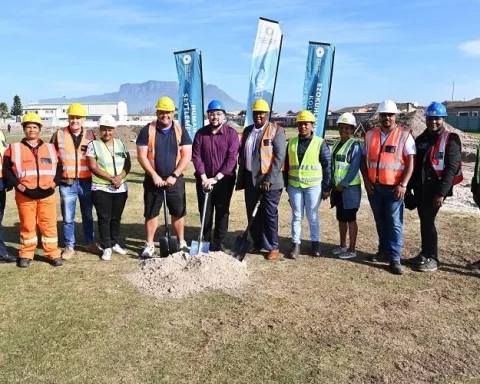Showcasing Cape Town’s Innovative Water Management Solutions
In recent times, Cape Town has encountered substantial obstacles in conserving and managing its water resources. The city came close to depleting its water supply during the notorious “Day Zero” in 2018 and has been battling the impacts of climate change on its water resources. To address these challenges, Cape Town has adopted innovative and sustainable water management strategies. This week, the city had the chance to present these groundbreaking efforts to a global audience at the 50th Congress of the International Association of Hydrogeologists (IAH) held in Cape Town.
Cape Town welcomed a distinguished group of international and local hydrogeologists, geologists, and engineers, showcasing its dedication to water resilience. Councillor Zahid Badroodien, Mayoral Committee Member for Water and Sanitation, emphasized the importance of the event, stating that it provided the city with an “incredible opportunity” to share its progress.
Throughout the week, delegates toured various City of Cape Town projects, including the Table Mountain Group Aquifer (TMGA), Steenbras Scheme, Atlantis Aquifer Water Resource Management Scheme (AWRMS), and Cape Flats Aquifer Management Scheme (CFAMS). These projects illustrate Cape Town’s inventive approach to water management and its commitment to ensuring a sustainable water supply for the future.
Groundbreaking Initiatives in Water Resource Management
The TMGA project involves drilling, equipping, and commissioning seven production boreholes at the Steenbras Wellfield, as well as conducting exploratory drilling at the Nuweberg and Groenlandberg (Klipfontein) wellfields. This ambitious project aims to tap into the vast underground water reserves of the Table Mountain Group Aquifer, offering Cape Town a dependable and sustainable water source.
The AWRMS initiative centers on the Atlantis Aquifer, with recent developments including the completion of production boreholes in the Witzands Wellfield and the upgrading of the Witzands softening plant. Improvements to the plant feature a new brine sump, bulk acid system, and the replacement of electrical and control systems.
In the Cape Flats Aquifer Management Scheme (CFAMS), the city has commissioned the Strandfontein West Wellfield and Water Treatment Works, finished production borehole drilling at Hanover Park Wellfield, and the Strandfontein East/Mitchells Plain Wellfield. These advancements in groundwater management not only highlight Cape Town’s commitment to water resilience but also offer valuable insights for other cities facing similar challenges.
Building a Water-Resilient Future
Councillor Badroodien stressed the city’s ambitious target of increasing its water supply by 300 million liters of new water daily by 2030, encompassing groundwater, desalination, and water reuse. While these projects are in different stages of development, collectively they symbolize Cape Town’s proactive approach to optimizing water use and building resilience against climate change.
To ensure compliance and track progress in its groundwater abstraction projects, Cape Town has established Monitoring Committees for both the Cape Flats Aquifer Management Scheme and the Table Mountain Group Aquifer scheme. These committees play a vital role in ensuring the responsible use of resources and preserving the integrity of each project.
As the IAH Congress unfolded over the week, it became evident that Cape Town is a frontrunner in water resilience and sustainability. Its innovative initiatives, such as the TMGA, AWRMS, and CFAMS projects, not only demonstrate the city’s determination to overcome its water challenges but also serve as a beacon for other cities grappling with similar issues. By sharing its experiences and progress on the global stage, Cape Town solidifies its position as a leader in water management and takes a crucial step forward in securing a water-resilient future for its citizens and the world as a whole.








